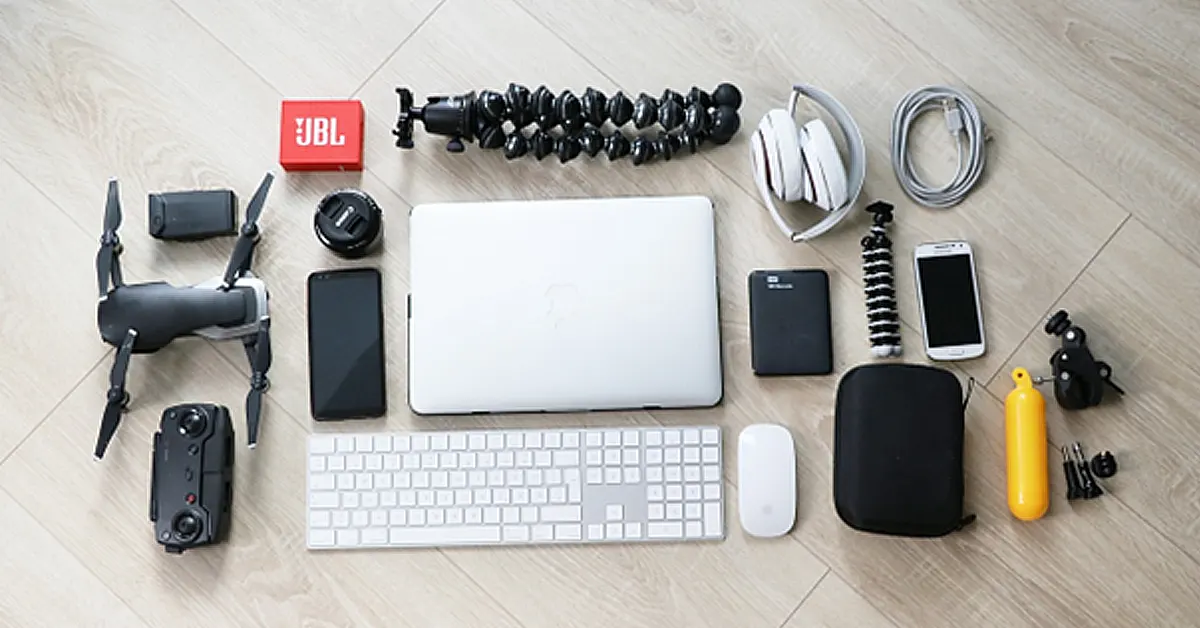What awaits us in the tech sector by 2025 is undoubtedly going to be groundbreaking, ushering in a new era of innovation and sailing its way through our tech gadgets & devices. Some very exciting things are on the horizon, from AI-driven technologies to quantum computing. Check out the key tech trends that are defining the evolution of gadgets next year.
In This Article
Artificial Intelligence (AI) Is Everywhere
By 2025, artificial intelligence will no longer be a buzzword but an inherent part of every gadget. Everyone will have personalization implemented because of AI, which will essentially make every device more intuitive. The gadget now will not just respond to your commands but guess them. Like a fridge suggesting recipes based on the available ingredients and your diet choices. Or, a car suggesting a traffic-free route to save time. And predictive analytics is the key to such precision since we are swamped by data daily.
Augmented Reality (AR) and Virtual Reality (VR)
AR and VR will shape our relationship to the digital world. Expect to see lightweight and stylish AR glasses that show digital information in the real world. VR experiences will also improve, providing more immersive delights for entertainment as well as easier pathways to education and professional training.
The magic of Mixed Reality (MR) combines the best features of AR and VR, bringing new possibilities in remote collaboration and interactive learning. People will be able to interact with virtual objects in the physical world, democratizing creativity and productivity.
AR and VR technologies are a growing trend in the casino industry. In the future, you will play the lottery and casino online with an experience similar to what one gets in a real gambling house via your PC screen or internet-enabled device.
Internet of Things (IoT) Growth
The IoT is growing by leaps and bounds, linking even everyday kitchen appliances to industrial machinery. In 2025, interfacing with different devices will be even more convenient through IoT and the creation of smart environments where everything is connected, which in return increases efficiency. This will also facilitate the development of other services and business models.
Faster, more reliable 5G technology will be the backbone of this broader IoT world. To top it all off, 6G networks will redefine connectivity even further by introducing speeds that can accommodate holographic displays and AR experiences.
The Quantum Computing Breakthroughs
Theoretical quantum computing is now becoming a reality. We are likely to see quantum computers — whose enormous potential processing power allows them to solve problems that traditional computers cannot, such as simulating molecular structures for drug discovery or optimizing logistics across global supply chains — solving complicated quantum performance benchmarks by 2025.
When quantum computing rises, new cybersecurity challenges will arise. For instance, encryption methods that are currently secure will become vulnerable and need improvement. The development of quantum-resistant cryptography to protect data will help address this issue.
Autonomous Systems
Self-driving cars will be part of an ever-expanding list of robotic and autonomous systems that make up humanity’s transportation network. These systems will undertake everything from delivery services to aides for seniors or people with disabilities, as well as safety and access in general.
As autonomous systems become more common, ethics and etiquette—including privacy issues and employment effects (the death of many jobs)—will be forced into full public view. Reforms and regulations will advance to ensure these systems work for the societal good.
Sustainable Tech Innovations
Many technological innovations will also be financially driven by sustainability. All upcoming devices will also be designed with eco-consciousness in mind, using biodegradable materials and energy-efficient technologies. Advancements and innovations in battery technology, like solid-state, will provide extended life cycles with fewer environmental consequences.
Expect to see renewable energy even more tightly integrated into gadgets, with solar panels included in everything from smartphones to wearables. These panels will generate electricity that would offset some of our gadgets’ carbon footprint.
Conclusion
In 2025, technology will become not simply a part of your life but interwoven into every minute aspect. Artificial Intelligence will be ubiquitous, making our gadgets smarter and more personalized. Our devices will chatter away to one another via the Internet of Things and be enabled by high-speed connections such as low-latency networks like 5G or perhaps even 6G. Quantum computing will solve impossible problems for us before cybersecurity has the chance to catch up.
Which tech excites more? Let us know in the comments.




